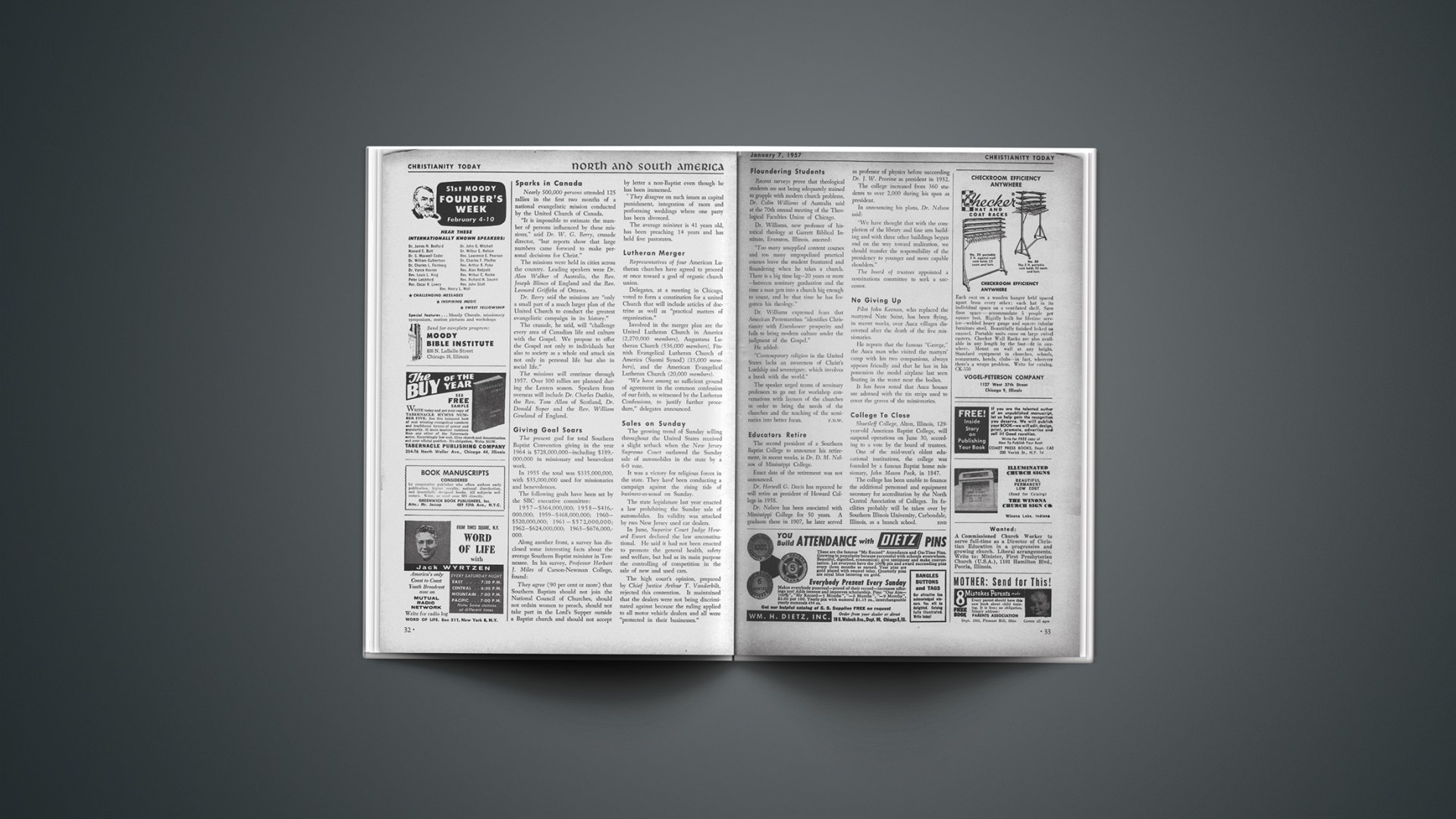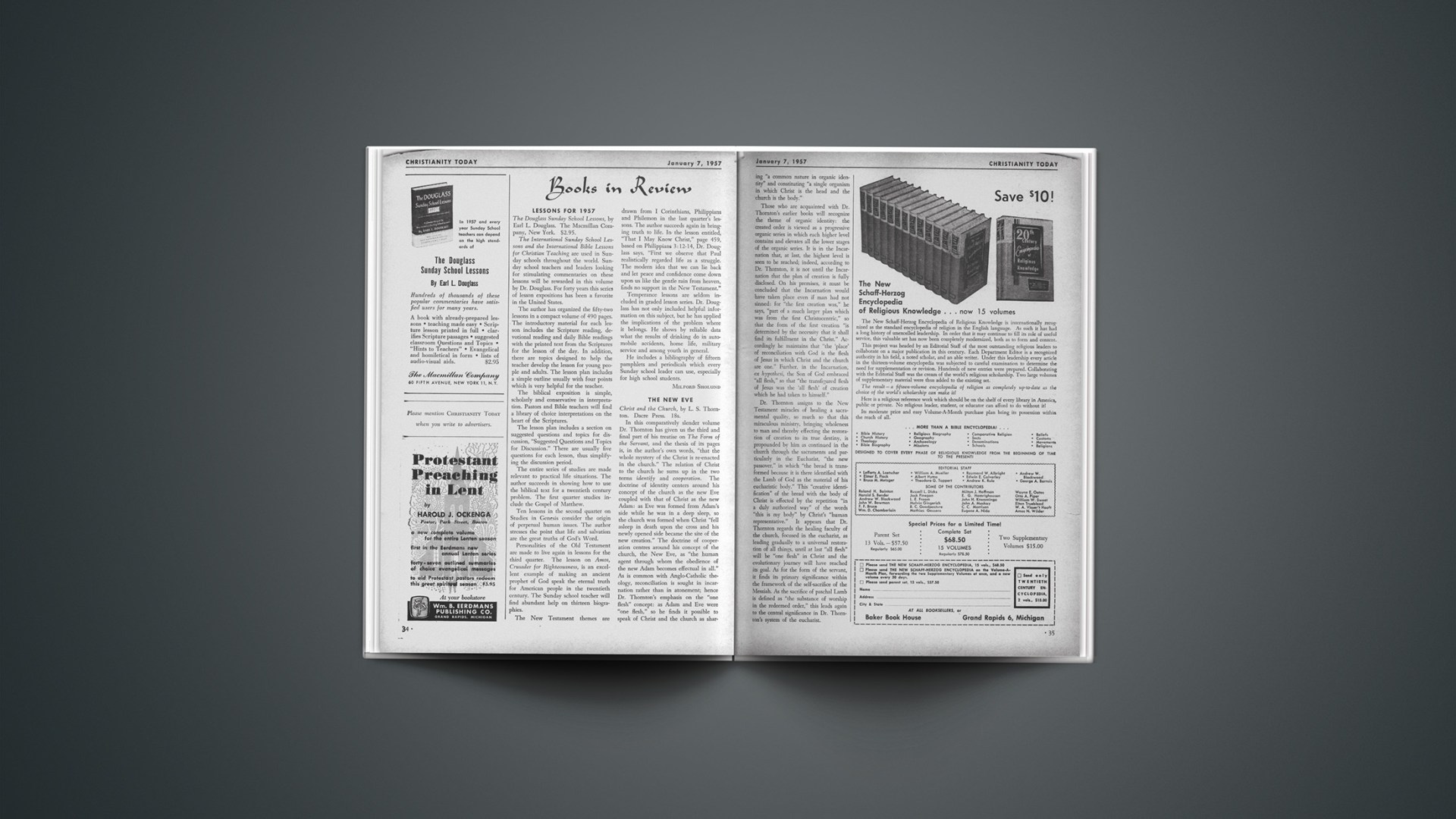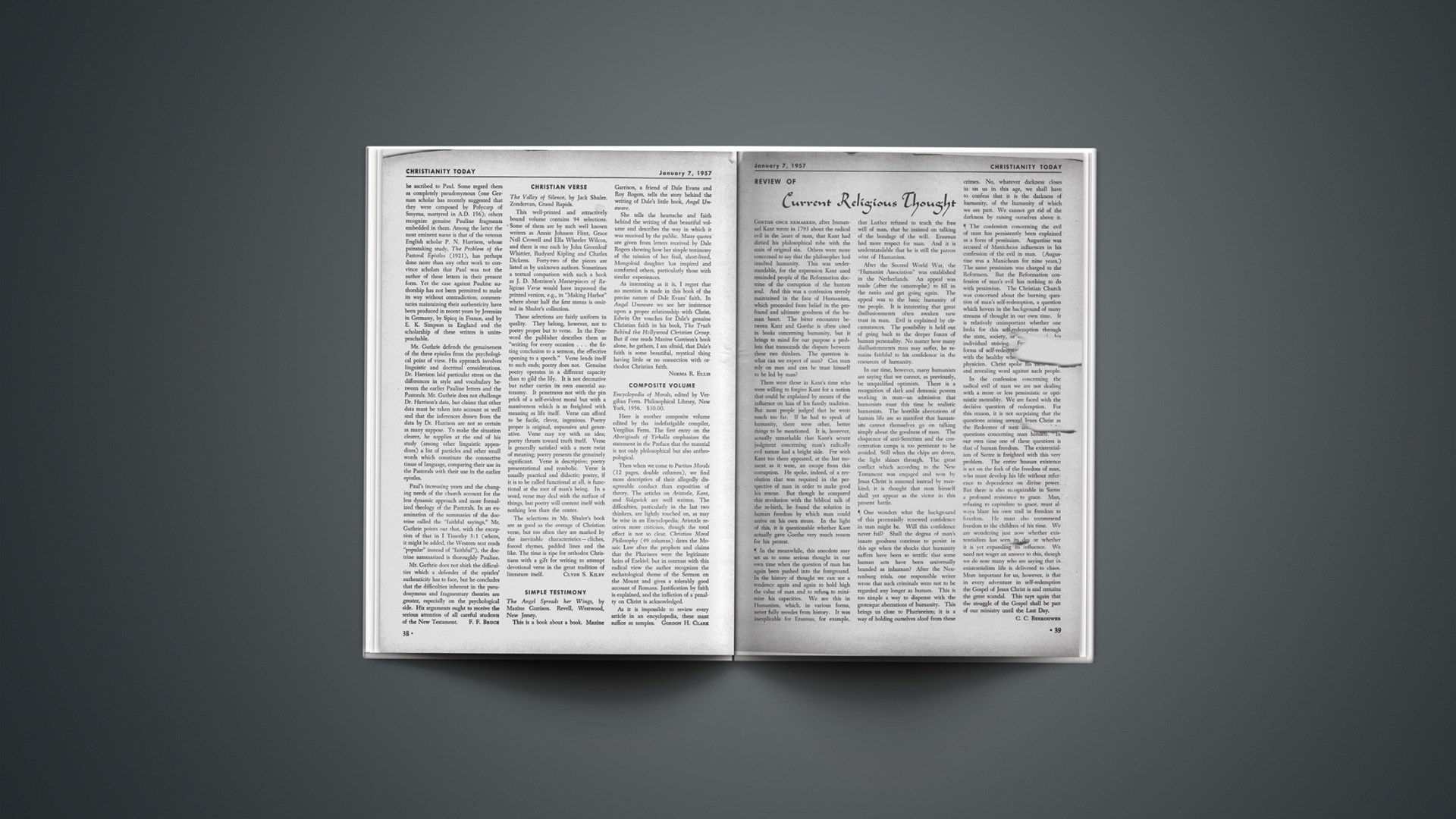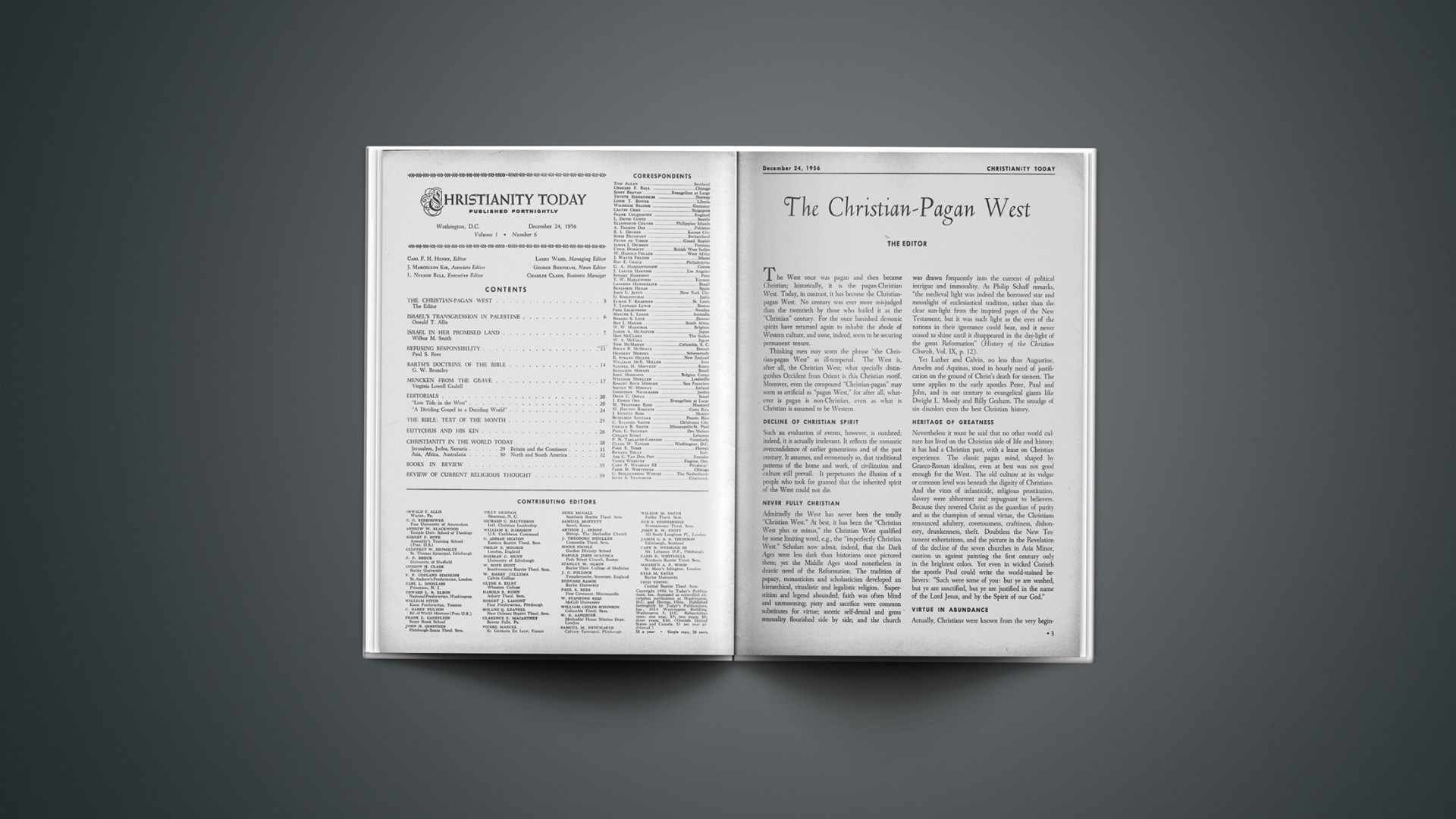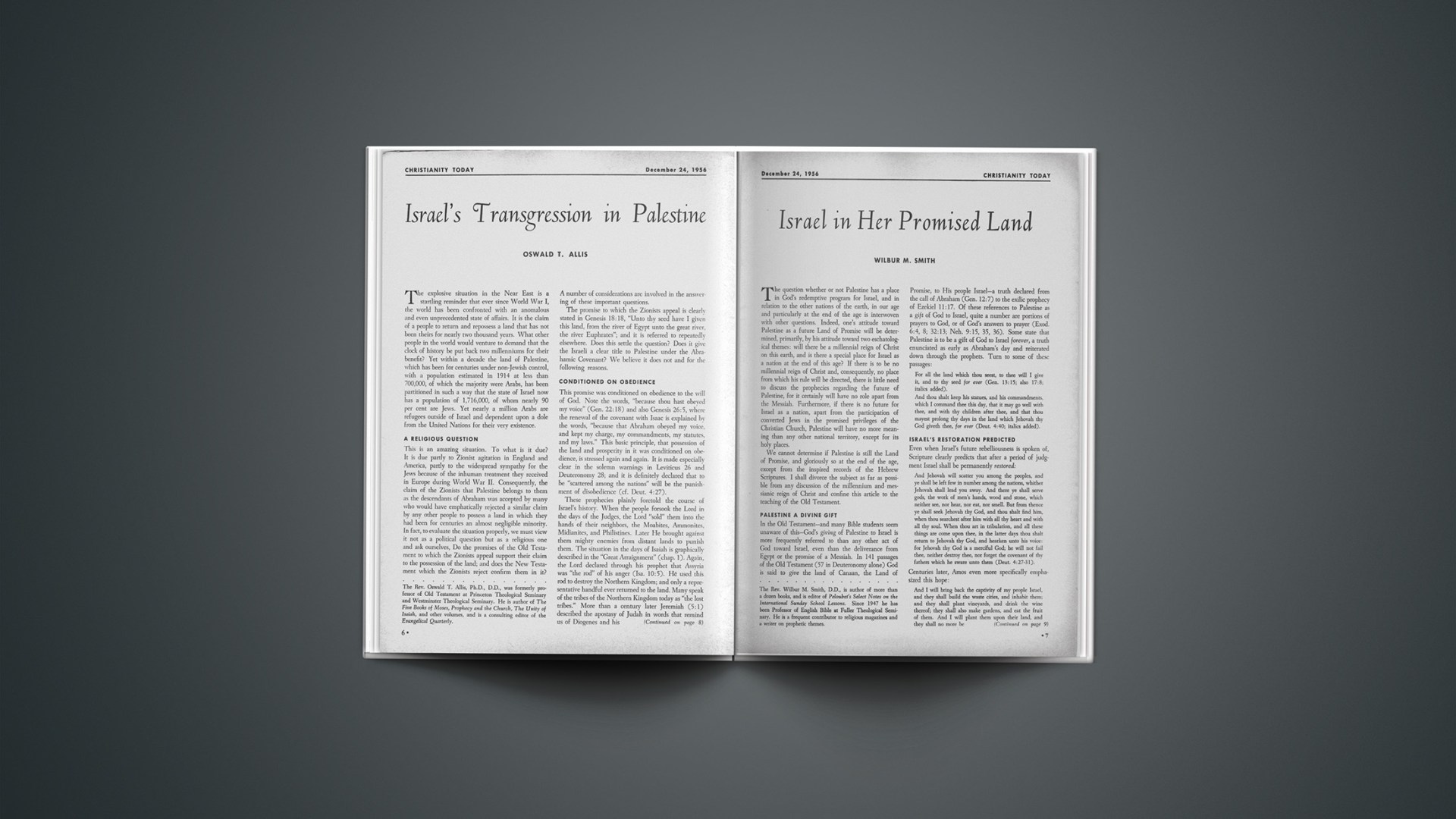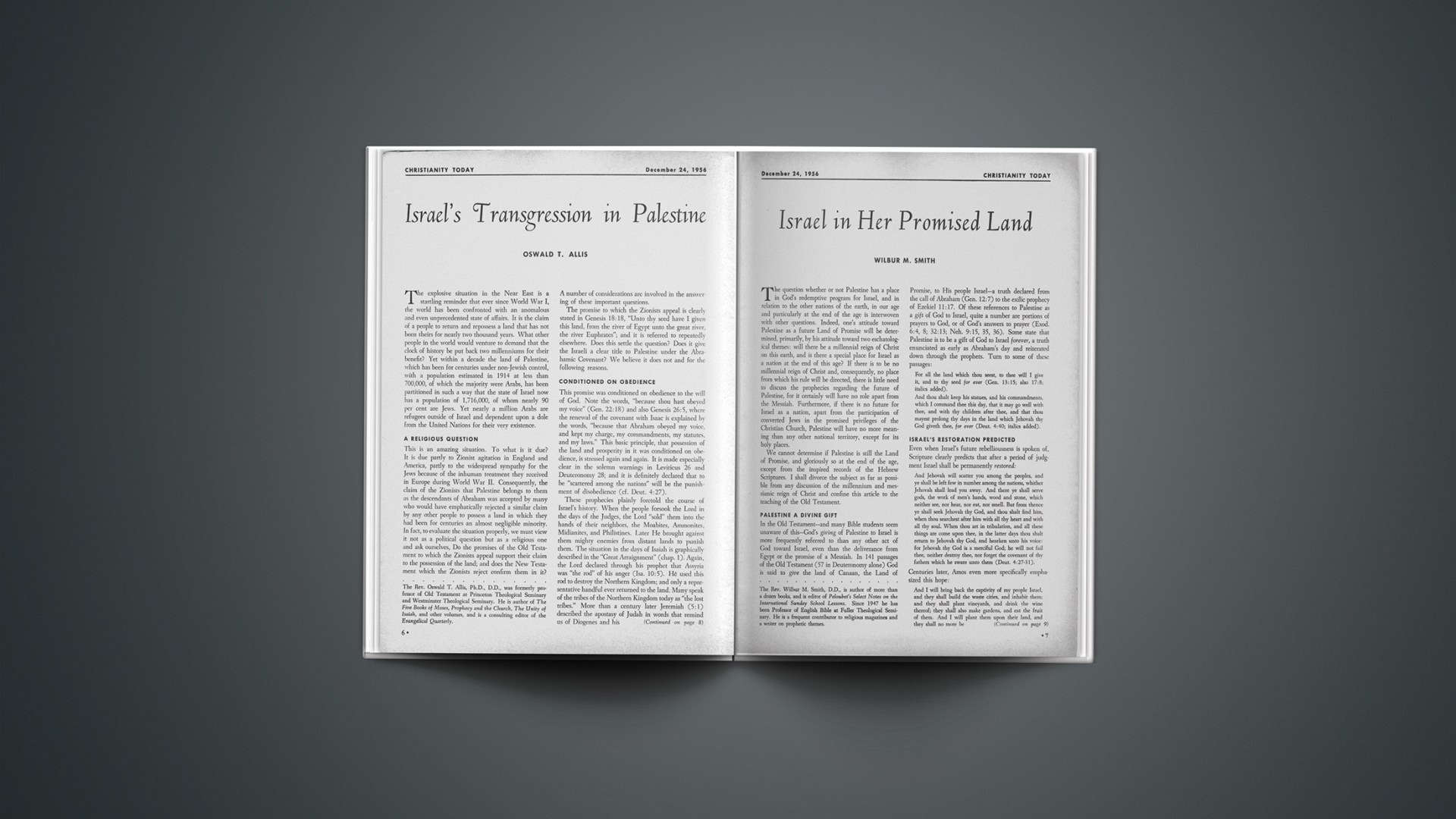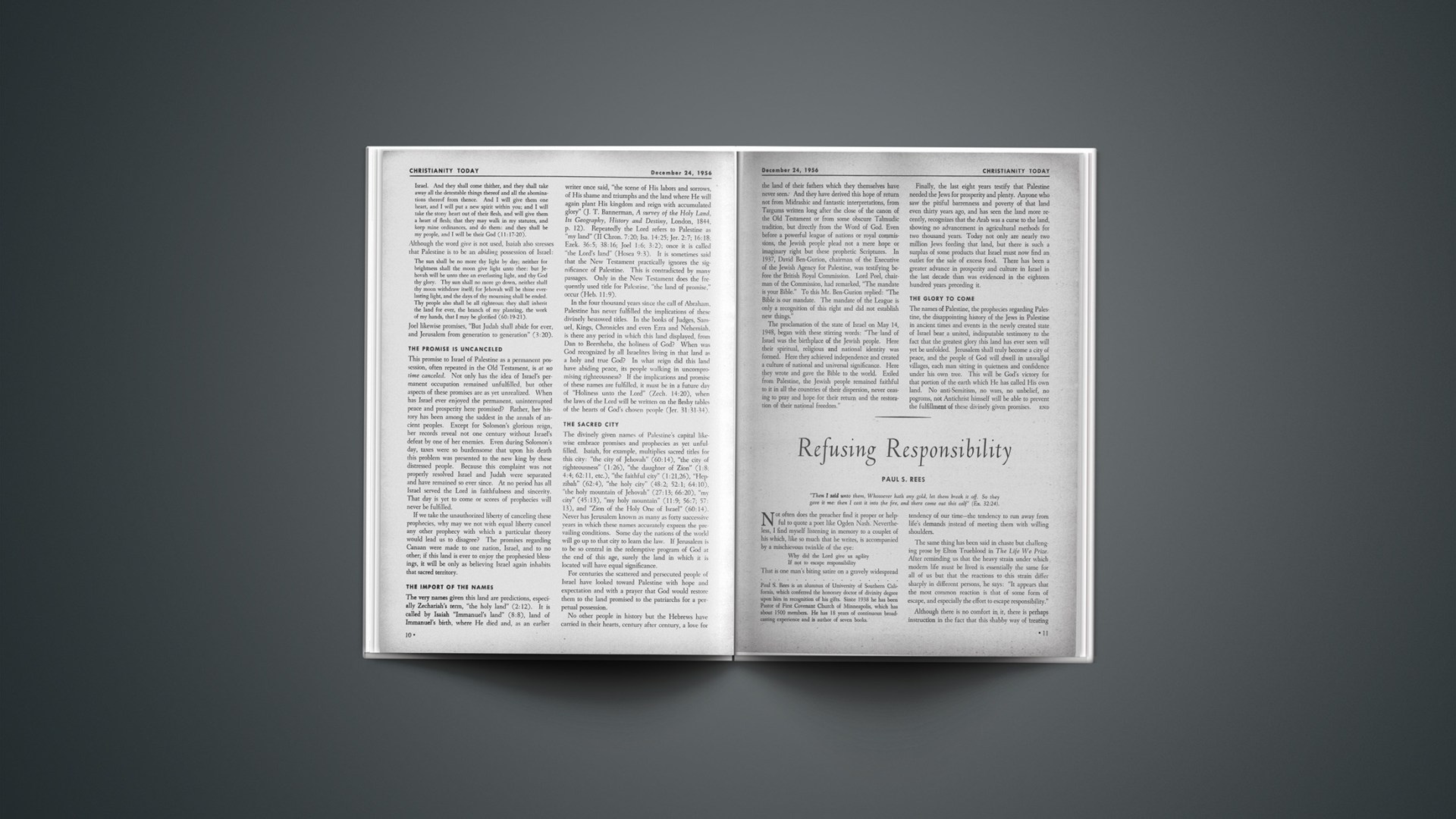Missionaries Slain
Half-civilized natives of Dutch New Guinea became enraged when their pigs began to die in large numbers.
Blame for the plague (thought to be pig-cholera) was laid on the intrusion of missionaries in tribal territory.
A native uprising was planned for November 3, but failed to materialize, according to information received by the American Mission of the Christian and Missionary Alliance. Then, about two weeks later, the natives, armed with axes and knives, surrounded the mission, located near the border of Dutch and Australian New Guinea.
Twelve unarmed native missionary teachers were killed and the bodies dismembered, the Sydney Mirror reported. An airplane belonging to a European missionary was ripped apart.
Had the November 3 attack been on schedule, 12 American missionaries, plus the 12 natives, would have been caught at a mission service.
The uprising was brought under control when the Dutch flew Marines, with Sten guns and mortars, to the scene. Americans and Europeans were kept under police protection in a government building for several nights.
‘Godless Monopoly’
A new universal primary education plan initiated by the East Nigerian government has been denounced by Catholics as a “godless monopoly of education.”
Under the plan, all new schools opened in the region are to be government-controlled and managed by local officials, who will be free to invite religious bodies to supply temporary faculty members.



